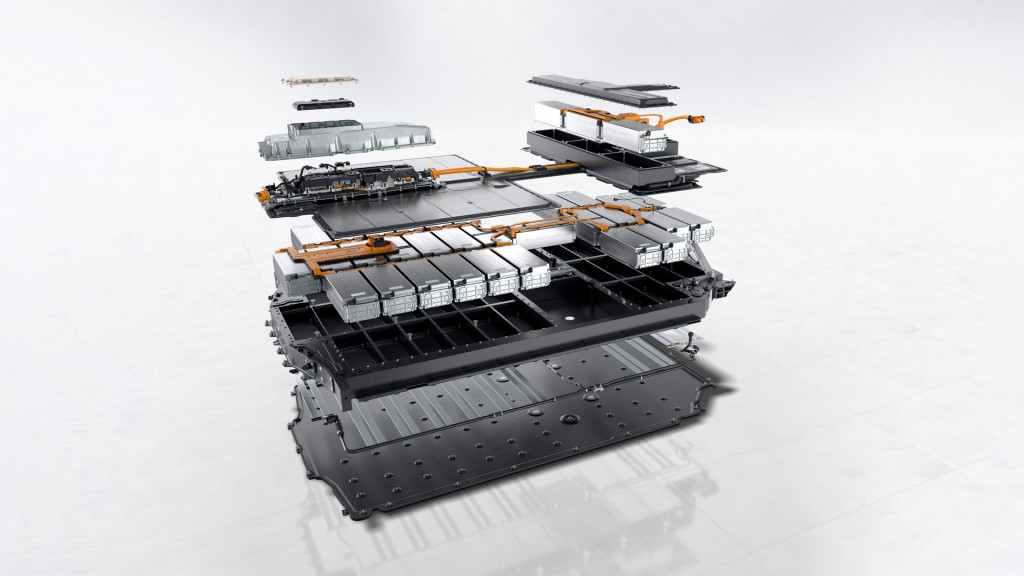Porsche is committed to becoming carbon neutral by 2030, not only in its own operations but across the entire value chain.
To achieve this goal, one of the key measures Porsche will undertake is expanding the number of electric vehicles it sells. The automaker estimates that by 2030 more than 80% of its sales will be EVs, with the remainder made up of the 911—which will be Porsche's last holdout for the internal-combustion engine.
For EVs, the key determiner of performance is battery technology. But rather than rely purely on outside suppliers, Porsche said this week it is developing its own batteries (cells and packs) via the new subsidiary company Cellforce Group, a joint venture established by Porsche and German battery technology company Customcells, an expert in lithium-ion cell technology that has traditionally serviced the aviation and shipping industries. Porsche has an 83.75% stake in the new Cellforce joint venture.

Battery from the Porsche Taycan Turbo S
“To this day, you cannot purchase the technology that is at the heart of our high-performance sports cars; we develop it ourselves,” Michael Steiner, head of R&D at Porsche, said in a statement. “That is why it is only logical for us to develop and build the key technology of the future, the battery cell, ourselves.”
Cellforce is on a lookout for a site for a new plant, with the German city of Tuebingen, home to Customcells and also a short drive south from Porsche's headquarters in Stuttgart, on the shortlist. The goal for the plant is to reach a minimum annual capacity of 100 megawatt-hours, or enough for about 1,000 vehicles. Porsche said it will initially use the batteries in high-performance applications and motorsport, including potentially Formula E where Porsche has a factory team.
For high-volume models, Porsche will source batteries from its Volkswagen Group parent, which is building an extensive network of battery plants. Eventually, solid-state batteries could be adopted, something VW Group sees as becoming a reality after 2025.

Porsche 99X Electric at the 2021 Formula E Rome E-Prix
Via Cellforce, Porsche will look to develop batteries using silicon for the anodes instead of traditional graphite, a design that could enable a battery to offer the same energy content with a smaller size than current technology allows. The new chemistry reduces the battery’s internal resistance, which allows it to absorb more energy during energy recovery and at the same time offer improved performance for fast charging. Another key attribute is an ability to operate at high temperatures. Key challenges to overcome include operation in sub-zero temperatures and stable performance through years of multiple charging cycles.
Speaking of charging, Porsche wants to ensure its customers have easy access to charging stations. While the automaker is already involved with public charging networks like Europe's Ionity, Porsche also plans its own network of stations with ultra-fast chargers and a lounge area where guests can relax. These will be located along major highways, starting in Europe.
Porsche is also installing chargers at its dealerships. These will be capable of charging at rates of 350 kilowatt and we know Porsche is also testing chargers with rates of 450 kw. At these rates, you'd be looking at approximately 60 miles of range being added in as little as three minutes.
